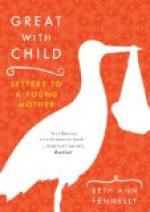And what better than this do WE, now? We make provision for the happiness of the adult. The most indigent person will find time and money to spend for the gratification of his own senses, his pride, or his curiosity; but his children—they may be overlooked! Or, if he has an eye to the future happiness of his child, he conceives that he is promoting it in the best possible degree, by endeavoring to lay up a few dollars for his use, after his character is formed—at a period, as it too often happens, when money will do him little good, since it can neither purchase health, peace of mind, nor reputation.
Far be it from me to say, that the poor—ground into the dust as they are, by the force of circumstances operating with their own concurrence, to make them ignorant, vicious, or miserable—can do for their children all that is desirable. By no means. But they have it in their power to do much more than they are at present doing. They have it in their power, at least, to use the same good sense in the management of the human being that they do in that of a pig, a calf, or a colt, or even a young vegetable. No parent, let him be ever so poor, is found in the habit of neglecting either of these in proportion to its infancy, and of exerting himself only in proportion as it grows older. Common sense tells him that the contrary is the true course; that however poor he may be, he will be still poorer, if he do not take special pains with the young animal, to rear it and with the young vegetable, to give it the right direction, by keeping down the weeds, and pruning and watering it. And I say again, that however deserving of censure the wealthy of a Christian community may be in not directing the ignorant and vicious into the right path, and in not expending more of their wealth on those who are poor, in elevating their minds and their manners, and promoting their health, still the latter are inexcusable for their present neglect of their infant offspring, while they would not think of neglecting, on the same principle, the offspring of their domestic animals.
CHAPTER VII.
FOOD.
SEC. 1. General principles.—SEC. 2. Conduct of the mother.—SEC. 3. Nursing—rules in regard to it.—SEC. 4. Quantity of food. Errors. Over-feeding. Gluttony.—SEC. 5. How long should milk be the child’s only food?—SEC. 6 Feeding before teething. Cow’s milk. Sucking bottles. Cleanliness. Nurses.—SEC. 7. Treatment from teething to weaning.—SEC. 8. Process of weaning-rules in regard to it.—SEC. 9. First food to be used after weaning. Importance of good bread. Other kinds of food.—SEC. 10. Remarks on fruit.—SEC. 11. Evils and dangers of confectionary.—SEC. 12. Mischiefs of pastry.—SEC. 13. Crude and raw substances.
SEC. 1. General Principles.
The mother’s milk, in suitable quantity, and under suitable regulations, is so obviously the appropriate food of an infant during the first months of its existence, that it seems almost unnecessary to repeat the fact. And yet the violations of this rule are so numerous and constant, as to require a few passing remarks.




